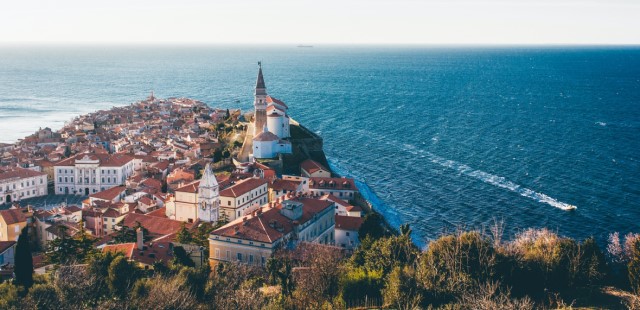Just this year, with Slovenia becoming the successor of the EU Presidency, an issue arose around the country’s Water Act amendment. Many believed that it contravened the EU Water Framework Directive which, among other things, dictates that member states are not allowed to build on water areas except in extraordinary circumstances (for the reason of human health, maintenance of human safety ( flood protection measures) and sustainable development). A wave of criticism spiked with the new amendment, passed in March 2021, after questionably low public involvement before its implementation. The most critical paragraphs (exceptions for construction on water and on coastal areas) were added after public consultation.
The new amendment introduced controversial changes possibly allowing for projects like restaurants, hotels, or other facilities to be built on water and along the coastal areas - this is a coastal strip of 40 m width from the water area in the natural areas and 15m width in the urban areas. The concerned group of impacted stakeholders argue that this could bring many problems in a form of limited public access to water bodies as well as increased risk of water pollution and may lead to a lower quality of drinking water.
“According to the existing Water Law, interventions on water and coastal lands are only possible in exceptional circumstances,” Geology Professor and chair of GWP Slovenia, Barbara Čenčur Curk at the University of Ljubljana told The Brussels Times. “The amendment to the law abolishes the restriction that interventions on coastal land are possible only on existing building land in an existing settlement.” As the professor further said, such actions would allow for the construction to be initiated outside the boundaries of said settlements, potentially stretching along the entire watercourse. “The real threat, which this law opens up, is that unrestrained development of hotels, restaurants and car parks can endanger some of Slovenia’s well-preserved natural environment.”
On the other side of the argument stood The Slovenian Ministry of the Environment and Spatial Planning, claiming that first, the Water Act’s new rules would secure financial support for watercourse maintenance and flood mitigation. And second, the rules would also restrict any private development projects along water bodies. The amendment would stop any attempt to develop any industrial facilities, however, it would still allow for public use buildings in a recreational category and alike to be realized.
The concerned stakeholders, consisting of environmental organizations and civil society groups, formed a “Movement for Drinkable Water” and decided to initiate referendum talks to prevent the amendment from potentially causing any harm to the environment. Using their combined reach and influence, they successfully managed to collect more than 50,000 signatures, enough to officially start the referendum and let people decide the fate of the Water Act amendment.
At the end, about 86.7% of people (out of 682,000 voters) voted NO to the changes in the Water Act that was perceived as threatening to the environment and water quality. It’s worth mentioning that the voter turnout was around 46.4% among Slovenia’s 1.7 million eligible voters. That’s the highest score in a referendum since 2007, showing a remarkable public interest in the protection of the environment.
GWP CEE Regional Chair, Prof. Tjaša Griessler Bulc from the University of Ljubljana said: „We are very proud that democracy and community engagement won against new harmful water law proposed by our government.” Prof. Bulc was also enthusiastic about the fact that the referendum was backed by highly devoted GWP Slovenia chair, prof. Čenčur Curk as well as other experts.
Another encouraging thing is that the main actors of the referendum were young people coming from different backgrounds, also political, showing again that water can unify all people.
The government cannot change the Water Act a year after the referendum. The SDG6.5.1 evaluation workshop in October 2020 already showed that the need for support in integration between sectors, institutions and the professional public in water management (horizontal and vertical integration) was highlighted in all four key areas of IWRM in Slovenia. GWP Slovenia sees the opportunity to play an important role as an independent network to bring together Slovenian stakeholders in selected fields of activity as well as to connect the local community with state institutions by cultivating a culture of cooperation (education and information, collecting and presenting good practices, examples of detailed (local) water management plans) with the final goal: defining the optimal Water Act.
